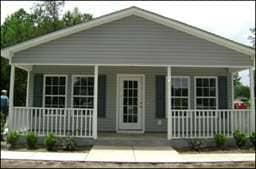
Habitat for Humanity | Healthy lives and healthy homes go hand in hand
Healthy lives and healthy homes go hand in hand.
At a glance

Mission | Put God’s love into action by bringing people together to build homes, communities and hope
Founded | 1991
Where | 1907 Hampton Court, Georgetown. Habitat Restore at 1145 N. Fraser St., Georgetown
Houses built | Four a year. 104 since the agency’s beginning.
More info
If you’re not healthy and have to miss work, you could fall behind on your mortgage. Or if you’re living in a substandard rental house or apartment, the poor living conditions could affect your health.
Those are just a couple of the situations Habitat for Humanity-Georgetown County is working to change in our community.
“We are trying to set our families up to succeed,” said Annette Perreault, executive director of Habitat for Humanity Georgetown County. “They need to be healthy to sustain their jobs so they can maintain their mortgage payments. It’s all connected. This is why it’s so important for our families to access health care.”
Habitat for Humanity helps low-income, working families become homeowners through no-interest, no-profit mortgages. The homeowners also chip in a little sweat equity helping work on the new house.
But often, Habitat’s clients have ongoing health conditions such as diabetes or are on dialysis waiting for a kidney transplant.
“It’s major what our families are going through healthwise,” Perreault said. “The health of our families is incredibly important.”
Habitat helps its clients who ask for health care get it through the Tidelands Community Care Network. Habitat is one of about 25 partners in the network, which was created by Tidelands Health in partnership with Access Health SC and The Duke Endowment. The network is comprised of health educators, state agencies, transportation providers, primary and specialty care providers and others who can help uninsured residents have access to medical care.
“If someone is telling us that they have health issues, we send them to the Tidelands Community Care Network,” Perreault said.
Habitat also teams with Tidelands Health on prevention. The health system sets up in the Habitat ReStore to offer free flu shots every year, and the two partner on health fairs to encourage screenings for blood pressure, diabetes, cholesterol and more.
“Habitat for Humanity does such great work in our community helping residents achieve their dream of owning their own home,” said Kelly Kaminski, director of community health resources for Tidelands Health. “Habitat’s partnership in the Tidelands Community Care Network provides important resources for our clients to live healthy lives in healthy homes.”
Health issues not only affect quality of life but can affect finances, too. Some of the families who approach Habitat aiming to become homeowners discover their debt-to-income ratio is too high – many times because of debt related to health care, Perreault said. That keeps them from qualifying for a mortgage. Habitat tries to get these families back on track by referring them to the Tidelands Community Care Network for financial counseling.
“We have a tremendous number of people who apply or come to the door,” Perreault said. “We never turn anyone away without referring them [to an agency to assist them].”
Habitat also is working with local officials to crack down on predatory landlords who are renting out substandard housing. In some cases, the rental units are filled with rodents or have no heat – conditions that can make the tenants sick.
To help raise money to assist families and build houses, Habitat operates a ReStore in the Winyah Village Shopping Center in Georgetown, which sells not only donated goods but also new items including cabinets and flooring. Residents are encouraged to donate items or volunteer in the store to “help build homes without a hammer,” Perreault said.
Habitat builds about four houses a year. Since its beginning in Georgetown in 1991, the non-profit has completed 104 houses.
The agency collaborates with others to try to meet the demand for housing in Georgetown, fueled by the unwavering faith of its many applicants, Perreault said.
“The need is staggering. We have an affordable housing crisis in Georgetown,” Perreault said. “It can be daunting but we take one issue, take one step at a time.”